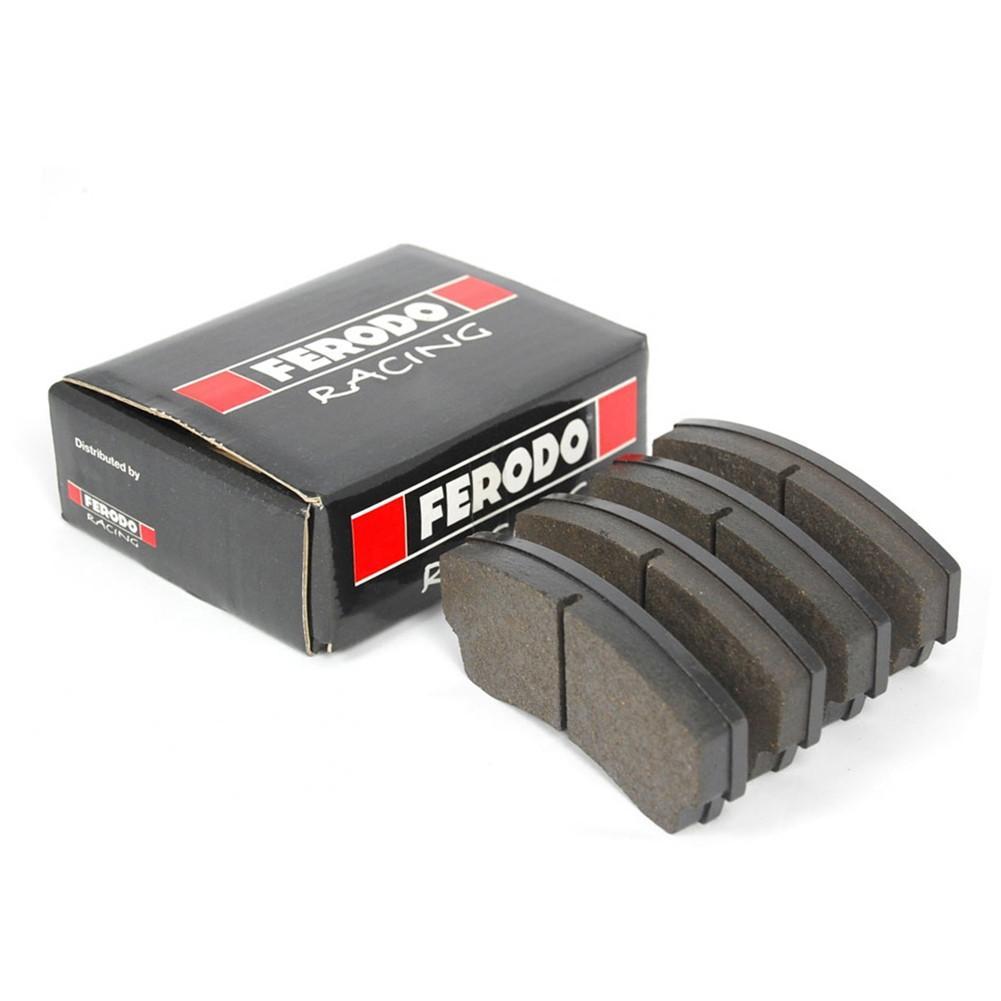
C7 Corvette - Ferodo DS 1.11 Race Brake Pads : Stingray, Z51
Regular price
$ 34799
$ 347.99
Regular price
Sale price
$ 34799
$ 347.99
Save $ -347.99
/
- Free returns
- Carbon neutral
- Secure payments
- 100% Satisfaction Guarantee
- In stock, ready to ship
- Backordered, shipping soon
The DS1.11 is one of Ferodo's latest race pad offerings. It is an endurance compound designed for extended heavy use on the track. The DS1.11 is known for its extremely flat torque curve, which means that as temperatures go up, the response through the brake pedal remains consistent. If you want a pad that you can thrash all day without having it burn up or fade, the DS1.11 is a great choice.
Ferodo's recommended bedding procedure: During manufacturing, all Ferodo racing products are subject to “chemical bedding” to stabilise the materials and resins used in construction of the pad. Although this “prebedding” is an effective method and sufficient for low temperature use, the ultimate results are achieved by actual bedding on either the car or dyno...
How ? ... This subjects the pad to the correct heat and torque loads seen in race conditions. These methods transfer pad material into the face of the rotor leaving a “transfer film” the friction generated between the pad face and this transfer film determines the performance of the “bite”. Correct bedding also ensures that materials which may become compressible are stabilized with the heat and pressure to avoid a “spongy pedal”.
Why? ... When bedding in the car always try to bed on used rotors. If bedding on new rotors follow the rotor bedding instructions of the manufacturer, as it is important to heat cycle them first before bedding the pads. After fitting the new pads prepare the car by blocking off 50 percent of the brake cooling / air ducts to speed the “heat up time”. When leaving the pit lane apply brake gently at low speed to ensure pads are fitted correctly, build up temperature progressively to approx 350° C (670° F). This enables the heat to distribute around all areas of the pad.
When brakes are at suitable temperature begin bedding process, achieve approximately 70 percent of race speed then perform 25-30 brake applications at half normal race pedal pressure holding on for 4 seconds. When this is completed use a slowing down lap to allow brakes to cool. Return to the pit lane and allow pads to cool completely, check rotor appearance. Transfer film should be constant around rotor face, any “patchy” deposit will result in brake pedal judder. The use of temperature paint on rotors enables more accurate bedding procedures.
Ferodo's recommended bedding procedure: During manufacturing, all Ferodo racing products are subject to “chemical bedding” to stabilise the materials and resins used in construction of the pad. Although this “prebedding” is an effective method and sufficient for low temperature use, the ultimate results are achieved by actual bedding on either the car or dyno...
How ? ... This subjects the pad to the correct heat and torque loads seen in race conditions. These methods transfer pad material into the face of the rotor leaving a “transfer film” the friction generated between the pad face and this transfer film determines the performance of the “bite”. Correct bedding also ensures that materials which may become compressible are stabilized with the heat and pressure to avoid a “spongy pedal”.
Why? ... When bedding in the car always try to bed on used rotors. If bedding on new rotors follow the rotor bedding instructions of the manufacturer, as it is important to heat cycle them first before bedding the pads. After fitting the new pads prepare the car by blocking off 50 percent of the brake cooling / air ducts to speed the “heat up time”. When leaving the pit lane apply brake gently at low speed to ensure pads are fitted correctly, build up temperature progressively to approx 350° C (670° F). This enables the heat to distribute around all areas of the pad.
When brakes are at suitable temperature begin bedding process, achieve approximately 70 percent of race speed then perform 25-30 brake applications at half normal race pedal pressure holding on for 4 seconds. When this is completed use a slowing down lap to allow brakes to cool. Return to the pit lane and allow pads to cool completely, check rotor appearance. Transfer film should be constant around rotor face, any “patchy” deposit will result in brake pedal judder. The use of temperature paint on rotors enables more accurate bedding procedures.




